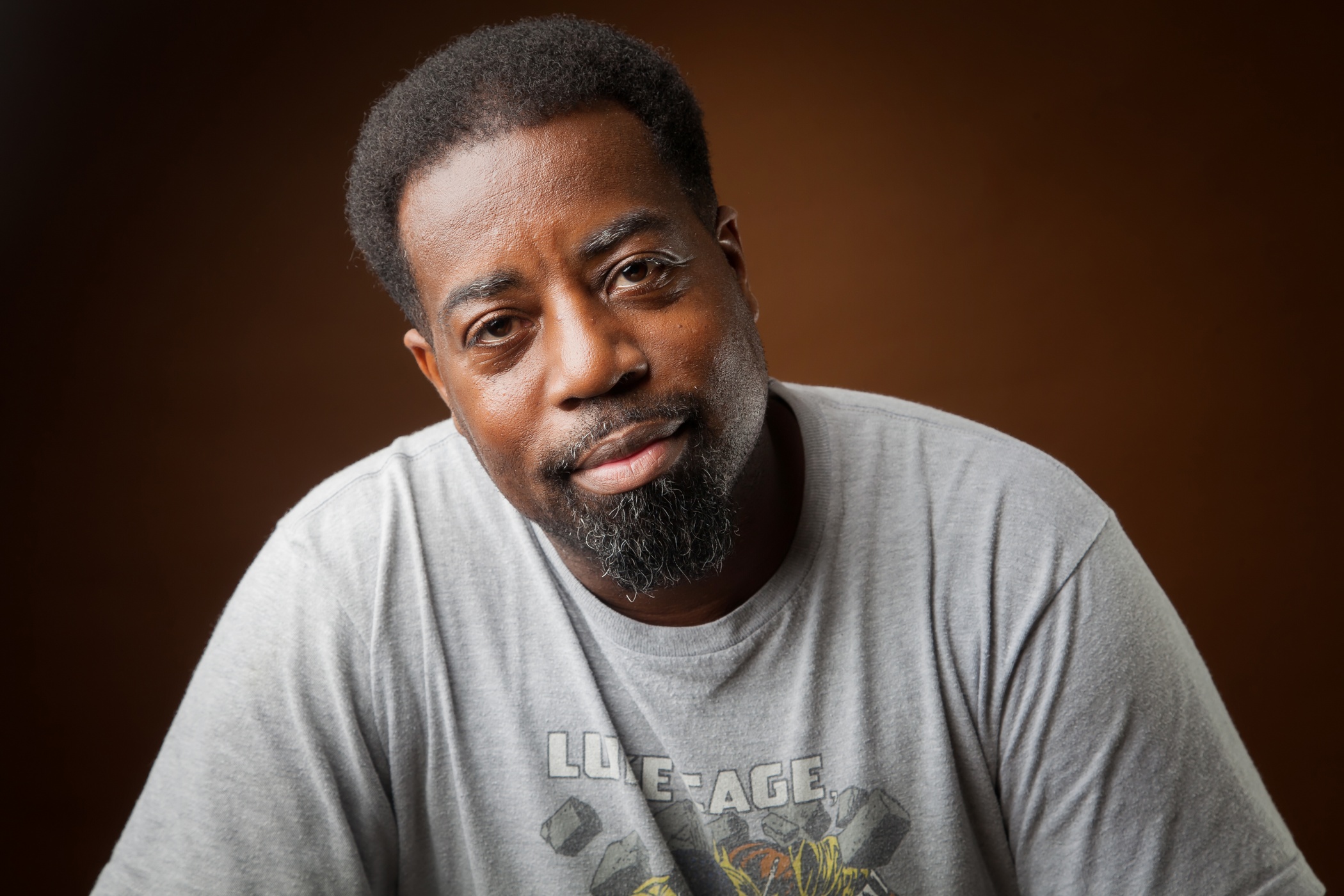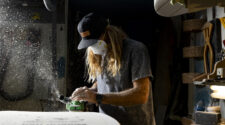Beyond “Black Panther”: Comic Creator and Educator Jeff Carroll Encourages Ethnicity and History Beyond the Pages
By Nile Fortner
Even though Black people have been portrayed in comics since the medium’s beginnings, their portrayals are often the subject of controversy.
The integration of Black characters in mainstream and superhero comics has endured various obstacles, such as being portrayed in stereotypes and being portrayed as sidekicks as opposed to primary characters. Even some of the best-known Black characters such as “Black Panther” are the work of white writers and artists.
Proclaiming for the validity of comics is already an uphill battle for its artists, publishers, and fans. But fighting for the validity of Black comic book characters, creators, or even Black politics is a more nuanced situation with few people in positions of power capable of implementing change.
Luckily, comic book artist, writer, filmmaker and Broward County substitute teacher Jeff Carroll has formalized his efforts to expose all to the work of Black storytellers and artists.
The Next Generation of Black Main Characters
“I want to read and create stories that have a high energy,” Carroll said. “With a diverse cast of something you would see in “Black Panther” and “Luke Cage,” multicultural environments to teach and entertain.”
The next generation of Black heroes seems to be coming from Black creators who can tell their stories and offer their own unique creations. From traditional superheroes to every day people surviving a sci-fi apocalyptic world, Carroll encourages ethnicity and history beyond just the pages.
Carroll’s interest in sci-fi and comics goes back to his younger years. While struggling with reading and writing throughout middle school, he used comic books and movies as a way to both help himself and foster conversations with classmates. Inspired by the late female author L.A. Banks and author Steven Barnes, Carroll took his love of history, culture, and comics to tell stories featuring robots, zombies, monsters, and ghouls.
“I spend time at libraries, Googling, doing research on history and folklores,” Carroll said. “You have to learn real history and find a way to add elements to make it exciting for everyone. I stay within the spirit of history of what I’m writing, and I do not distort the facts.”
An example of this would be Carroll’s 2014 novel, “It Happened on Negro Mountain.” The horror story takes place in Baltimore, Md. and finds an urban drug dealer taking residence on Negro Mountain.
Negro Mountain is a long ridge of the Allegheny Mountains, stretching 30 miles from Maryland’s Deep Creek Lake north to Casselman River in Pennsylvania. Historical texts often discuss how this is a place where bad things happen to bad people. Due to its rich history, Carroll aimed to blend the historical texts, myths, and locations with multi-ethnic characters and scenarios in his book.
“People have told me that they’ve gotten so scared they had to put the book down…that they never knew something like that,” Carroll said. “Or they drive by [Negro Mountain] every day for work and never even thought of it; it connects with people in a special way.”
Spreading Awareness Through Fiction
Carroll’s debut novel, “Gold Digger Killer,” focuses on a female lead character who seeks revenge after being sexually abused. “Gold Digger Killer” may not be sci-fi or horror, however, Carroll’s inspiration for the story came from his personal life and one of his past relationships.
“This is a girl who said to me, ‘I’m not used to dating one guy because I like to hit up other guys for money,” Carroll said. “This was around the time there was a lot of Kanye [West] energy from his Gold Digger song. Even after we broke up, I felt concerned she would start dating the wrong type of guy and something could happen.”
While attending a stand-up comedy show at Miami Beach’s Jackie Gleason Theater on Miami Beach, Carroll heard a joke that rubbed him the wrong way. After that night, he paired his break-up and the joke to write “Gold Digger Killer,” his first book.
“This man made a joke about raping somebody,” Carroll said. “I wanted to send a cautionary message not just for Black women, but all women. Even men who thought stuff like putting date rape drugs in a women’s drink is cool or acceptable. Doing that had an impact on my everyday real life, too.”
While promoting “Gold Digger Killer,” fans of the book would ask Carroll for advice on relationships, which has paved the path to him leading dating workshops, safe sex workshops and speeches at South Florida high schools and universities.
Carroll’s books have also been placed in the Afro-Futurism genre. When the phrase comes to mind, many might think of African-American’s rocking cool, science-fiction gear such as Janelle Monáe, Outkast, George Clinton, or Marvel’s “Black Panther.”
But Carroll sees Afro-Futurism as more than flashy gear in pop culture; he considers it as an art form that shows how Black people can be the heroes of their own stories and have a positive future despite hardships of the past. The genre is important because it also gives the opportunity for African-Americans to learn about African heritage and descent.
“I think this genre is going to get bigger from here,” Carroll said. “In the last 10 years, the supply for it has grown into the demand with movies, comics, and events.”
Creating an Impact
Carroll has taken his books, artwork, and comics all over South Florida book stores, events and comic book conventions. He’s also been on panels discussing his stories and the importance of ethnicity and genders at local comic book conventions and events.
For more than 15 years, Carroll worked behind-the-scenes with production assistant for places like The Apollo, Def Comedy Jam and HBO Def Poetry, and he also helped produce live shows. Since Carroll had production experience in entertainment, he decided to go behind the camera. Some of Carroll’s books such as “Gold Digger Killer” and “The Death Pledge” have made their way to the big screen.
“We got Telemundo and BET to come out and do a video on us while we were shooting in production,” Carroll said. “’Gold Digger Killer’ went onto every film festival I applied to, and we got a distribution deal. The film has [gone] straight to DVD…I was running a film [at] the same festival as Tyler Perry.”
Carroll’s work started with showcasing diversity, history, and politics on paper and through the colorful pages of comics. HE knows the importance and power of stories.
“We need to embrace our narratives and our speculations because I tell people with science fiction, we’re now living in the future we use to speculate,” Carroll said. “It’s much harder for people to think past the future we are living in and go past that glass ceiling. We are now starting to see more stories with women in the same scenarios as men, more people of color, and all in ways we haven’t seen them before.”













